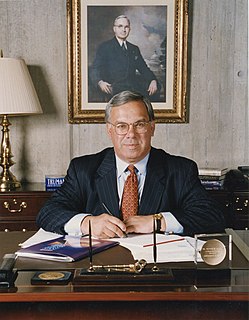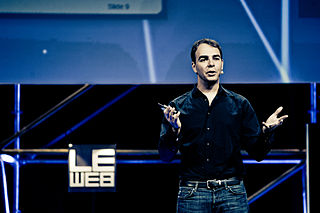A Quote by Vladimir Putin
We may have more control, but my point is that, strictly speaking, Rosneft is not a state company. I think that this is an obvious fact, as a foreign investor has a 19.7 percent stake in it.
Related Quotes
Speaking about our largest oil company Rosneft, and I recalled in the beginning that almost 20 percent of it [19.7] belongs to BP. Who's company is that? British Petroleum, isn't it? I suppose that is not bad. I have to tell that British Petroleum's capitalization is significantly related to the fact that it owns more than 19 percent of Rosneft, which has vast oil reserves both in Russia and abroad. This has its impact on the company's stability as well.
When you're in a start-up, the first ten people will determine whether the company succeeds or not. Each is 10 percent of the company. So why wouldn't you take as much time as necessary to find all the A players? If three were not so great, why would you want a company where 30 percent of your people are not so great? A small company depends on great people much more than a big company does.
Credible reports came through that Syria had used chemical weapons. Whether it's true actually is still open to question, but it's very probably true. At that point, what was at stake was what is called credibility. So if you read the political actors, political leadership, foreign policy commentary, they constantly point out accurately that US credibility was at stake, and we have to maintain US credibility. So therefore something had to be done to show you can't violate our orders.
The largest 100 corporations hold 25 percent of the worldwide productive assets, which in turn control 75 percent of international trade and 98 percent of all foreign direct investment.The multinational corporation...puts the economic decision beyond the effective reach of the political process and its decision-makers, national governments.






























